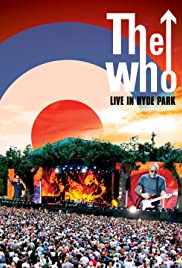
The Who’s epic 50th Anniversary Tour finale show, recorded at Hyde Park. Experience all the greatest hits including ‘Who Are You’, ‘My Generation’, ‘I Can See For Miles’, ‘Pinball Wizard’, ‘See Me Feel Me’, ‘Baba O’Riley’ and ‘Won’t Get Fooled Again’. Plus Pete Townshend, Roger Daltrey, Iggy Pop, Robert Plant, Johnny Marr and others share their stories of the band’s history and influence as legendary pioneers of British Rock.
You May Also Like
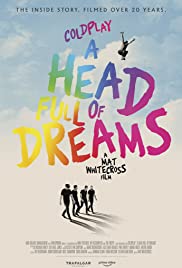
An in-depth and intimate portrait of Coldplay’s spectacular rise from the backrooms of Camden pubs to selling out stadiums across the planet. At the heart of the story is the band’s unshakeable brotherhood which has endured through many highs and lows.

Trauma to Triumph: Women details the traumatic stories of Cathy Hughes (Racism), Dana Donofree (Breast Cancer Survivor) and Maria Trusa (Sexual Assault Victim), showing how they used the power of entrepreneurship to overcome their demons.
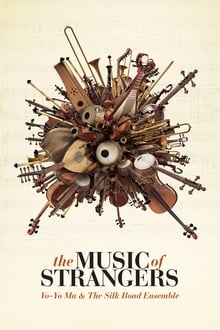
Follow several talented members of the ensemble as they gather in locations across the world, exploring the ways art can both preserve traditions and shape cultural evolution.

Ellie Simmonds investigates a controversial new drug that promises to help children with dwarfism grow closer to average height. If it can prevent dwarfism, should we embrace it?

The story of a 6th generation Texan as he explores ranches from Montana to Argentina working alongside American Cowboys. The story’s focus is on cattle operations and how the heart of the American Cowboy has not changed.

Brian Wallach was diagnosed with ALS at 37. He and his wife’s fight to reclaim their future from a brutal disease has snowballed into a movement with resounding ramifications not only for the ALS community, but for millions of patients seeking to find their voice in our broken healthcare system.
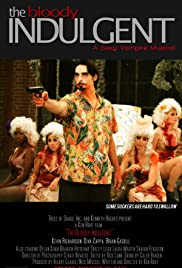
fter killing the owner of a B-rated strip club, Burt, an indulgent vampire with a zest for life hides out (and dopes up) at an upscale drug den, until the strippers seeking revenge…and …

Anna Hepp meets with renowned German director Edgar Reitz in one of Germany’s most famous cinemas: the Lichtburg in Essen. Reitz talks about his life, his view of art and his sometimes philosophical viewpoint.
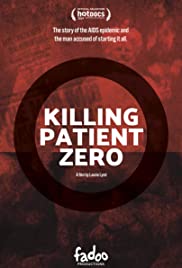
Skilfully revealing the homophobia behind the headlines, this doc traces the devastating impact of the 1980s AIDS epidemic and clears the name of the Québécois flight attendant who was infamously known as “patient zero.”

Professor David Spiegelhalter tries to pin down what chance truly is and how it works in the real world. With his unique storytelling method, he applies a blend of wit and wisdom, animation, graphics, and gleeful nerdery to the joys of chance and the mysteries of probability. It is a vital branch of mathematics that tells us what might happen in the future based on the events of the past.
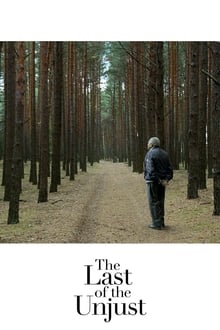
A place: Theresienstadt. A unique place of propaganda which Adolf Eichmann called the “model ghetto”, designed to mislead the world and Jewish people regarding its real nature, to be the last step before the gas chamber. A man: Benjamin Murmelstein, last president of the Theresienstadt Jewish Council, a fallen hero condemned to exile, who was forced to negotiate day after day from 1938 until the end of the war with Eichmann, to whose trial Murmelstein wasn’t even called to testify. Even though he was without a doubt the one who knew the Nazi executioner best. More than twenty-five years after Shoah, Claude Lanzmann’s new film reveals a little-known yet fundamental aspect of the Holocaust, and sheds light on the origins of the “Final Solution” like never before.

If you thought TV shows in which audiences and juries judge musical acts were a relatively new phenomenon, you’d better think again. In the 1970s, such “festivals” were incredibly popular in Brazil. They were recorded before a live studio audience, and usually featured a number of elimination rounds. They also formed the springboard for the career of many a big-name star, such as Chico Buarque, Caetano Veloso, Roberto Carlos and Gilberto Gil. Appearing on such a program was no cakewalk, however: audiences could be as wild in their condemnation as in their appreciation of an artist. Extensive archive footage (including performances and behind-the-scenes interviews) from a turbulent final of the Festival of Brazilian Popular Music one evening in 1967 paints a fascinating picture, not only of the transformation of Brazilian music into real “festival” music, but also of a society starting to buck against the yoke of military rule.